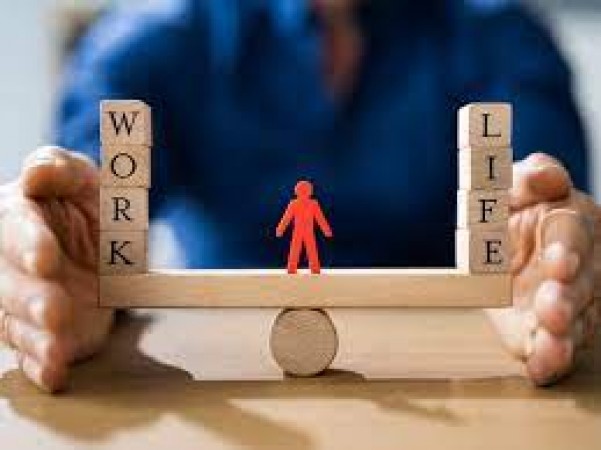
Finding the perfect Work-Life Balance in a Fast-Paced World has become a growing concern for people in today's busy and competitive environment. Amid the hustle-bustle of life, finding equilibrium between work and personal life can often seem daunting. This article will help you understand the importance of work-life balance, strategies to achieve it, and the potential consequences of imbalance.
Work-Life Balance in a Fast-Paced World: Why it Matters
We are part of a society that is driven by technology and rapid globalization. This unceasing pace can blur the line between work and personal life. In such a scenario, maintaining a work-life balance becomes pivotal for our mental and physical well-being. When you manage to balance professional responsibilities with personal interests, it results in improved productivity, better health, and overall contentment.
The Impact of Technology on Work-Life Balance
Our lives have become intertwined with technology in such a way that separating the two seems inconceivable. On the one hand, technology can increase flexibility by enabling remote work. Conversely, it can extend the workday, intrude on personal time, and exacerbate stress levels. By establishing boundaries and using technology mindfully, we can leverage its benefits without letting it disrupt our balance.
The Consequences of Poor Work-Life Balance
When professional commitments overshadow personal life, it can lead to chronic stress, burnout, and other health issues. Furthermore, it can strain relationships and affect life satisfaction. This section emphasizes the importance of addressing poor work-life balance and the potential repercussions if ignored.
Key Indicators of Work-Life Imbalance
Understanding the signs of work-life imbalance can help you take proactive measures to restore equilibrium. Persistent fatigue, decreased productivity, social withdrawal, and frequent health issues are some telltale signs of imbalance.
Strategies for Achieving Work-Life Balance
In this fast-paced world, maintaining a work-life balance can seem challenging. However, with the right strategies, it's possible to find that sweet spot between professional obligations and personal interests. This section will guide you through practical strategies to help establish balance.
Creating Boundaries Between Work and Personal Life
Establishing boundaries can prevent work from spilling into your personal life and vice versa. By setting clear boundaries, you can ensure that you give due attention to both domains without one overshadowing the other.
Time Management: The Key to Work-Life Balance
Time management plays a pivotal role in striking a balance. Effective time management allows you to allocate time efficiently to work and personal responsibilities, ensuring neither is neglected.
The Role of Employers in Promoting Work-Life Balance
Employers play a crucial role in promoting work-life balance among their employees. By implementing policies that support flexibility and well-being, companies can create a healthy working environment and boost productivity.
Remote Work: A Boon or a Bane for Work-Life Balance?
The rise of remote work has revolutionized the traditional workspace. However, does it help or hinder work-life balance? This section delves into the pros and cons of remote work in the context of work-life balance.
The Importance of Physical Health in Maintaining Work-Life Balance
Physical health is a significant determinant of work-life balance. Regular exercise, adequate rest, and a balanced diet are essential for maintaining energy levels and managing stress.
Mental Health: An Essential Aspect of Work-Life Balance
Just as physical health is crucial, so is mental well-being. High levels of stress can affect both work performance and personal life. This section will discuss the importance of mental health in achieving work-life balance.
The Role of Hobbies and Interests in Work-Life Balance
Engaging in hobbies and personal interests can provide an excellent outlet to relax and rejuvenate, thus helping maintain work-life balance. This section will discuss the significance of hobbies and interests in ensuring a balanced lifestyle.
Work-Life Balance: The Need for Regular Breaks
Taking regular breaks can aid in replenishing energy levels and enhancing productivity. It also provides an opportunity to relax and unwind, making it an integral part of achieving work-life balance.
Stress Management Techniques for Better Work-Life Balance
Excessive stress can disrupt work-life balance. Incorporating stress management techniques like meditation, yoga, and mindfulness into your routine can help maintain balance and enhance overall well-being.
The Impact of Work-Life Balance on Productivity
A balanced work-life schedule not only improves well-being but also boosts productivity. This section will discuss how achieving work-life balance can enhance work performance and output.
Work-Life Balance During Unprecedented Times: Coping During a Pandemic
The COVID-19 pandemic has added a new dimension to the concept of work-life balance. With the shift to remote work, managing professional and personal responsibilities simultaneously has become a challenge. This section will provide insights on maintaining balance in such unprecedented times.
Strategies for Work-Life Balance for Parents
Juggling parenting and professional responsibilities can often seem overwhelming. This section will provide practical strategies for parents to strike a balance between work and family.
Achieving Work-Life Balance: The Role of Organizational Culture
Organizational culture can significantly impact employees' work-life balance. A culture that values employees' well-being and encourages balance can foster a healthy and productive work environment.
Work-Life Balance: A Personal Responsibility
While employers have a role to play, achieving work-life balance is ultimately a personal responsibility. It requires self-awareness, proactive management of time and resources, and the ability to set boundaries.
The Future of Work-Life Balance in a Fast-Paced World
With the world changing at a rapid pace, the concept of work-life balance is also evolving. What does the future hold for work-life balance? This section will provide insights into the future of work-life balance. Achieving a work-life balance in a fast-paced world might seem like a constant juggle. However, with self-awareness, careful planning, and a commitment to personal well-being, it's possible to strike a balance that leads to overall satisfaction and productivity.
How to Foster Open Communication with Your Teenager